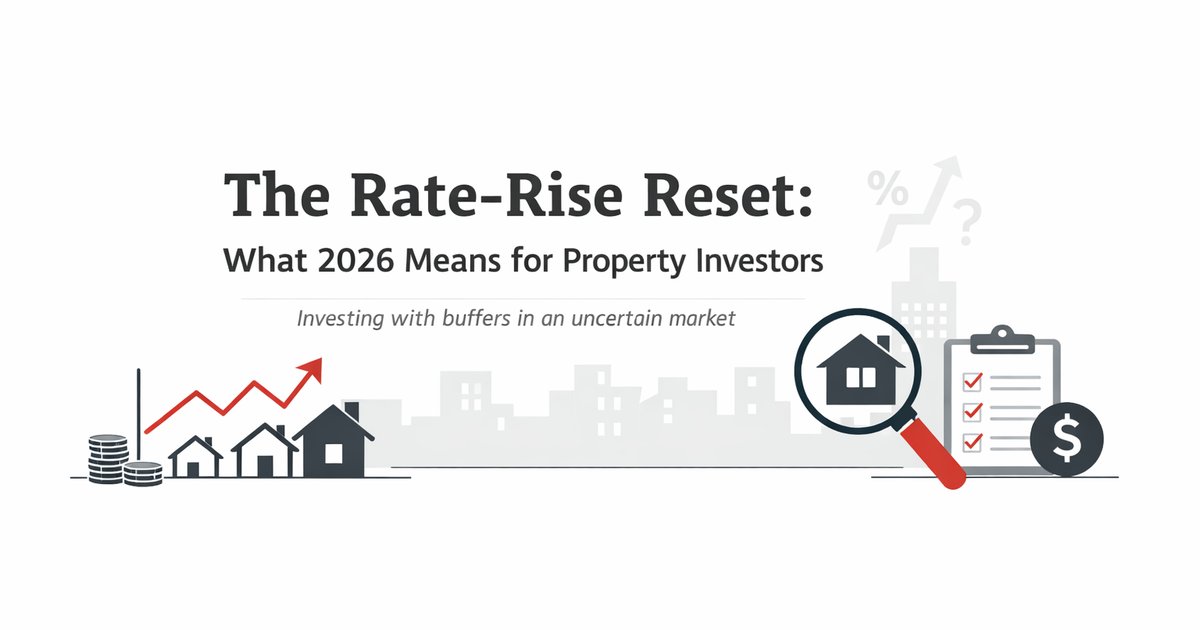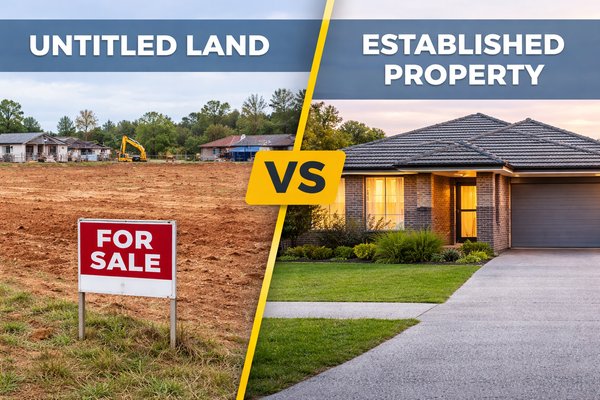Your 30s are a defining decade. It’s the point where many Australians start earning more, settling down, and thinking seriously about the future. But while income may increase, so too can financial pressure—mortgages, families, lifestyle upgrades, and peer comparison all kick in.
This makes your 30s a make-or-break decade for wealth building.
Unfortunately, many people fall into the same traps that slow or completely derail their financial progress. If you're looking to build a property portfolio, retire early, or just stop living from pay-to-pay, these are the pitfalls to avoid.
In this article, we’ll unpack five common financial traps; and show how you can stay ahead with smarter choices, especially if you’re interested in building wealth through property investment.
1. Lifestyle Inflation: The Sneaky Expense That Eats Your Raise
As your career grows, so does your income. But unless you consciously choose to keep your expenses in check, your lifestyle can expand right alongside it.
This is called lifestyle inflation; and it’s one of the most common traps in your 30s.
Suddenly, that bonus means a nicer car. A pay rise justifies a bigger apartment. Weekend getaways, restaurant dinners, subscription services—all feel deserved. And they are. But without limits, they become your new normal, eating up money that could’ve gone into investments.
Signs You’re Caught in Lifestyle Inflation:
-
Your spending increases whenever your salary does
-
You feel like you’re earning more but not saving more
-
You tell yourself you’ll invest “later,” after the next pay bump
The Fix:
-
Set a fixed percentage of income to invest first (e.g. 20%)
-
Avoid emotional upgrades; buy when there’s real value, not status
-
Delay gratification: Give yourself 30–60 days before large purchases
Investing the difference between what you earn and what you spend early in your 30s can set you up for financial freedom by your 40s.
2. Ignoring Superannuation: The Missed Opportunity
Superannuation isn’t exciting. It doesn’t feel urgent. It’s money you can’t touch for decades.
But that’s exactly why it matters.
The earlier you contribute to super, the longer it compounds. Many Australians only start thinking about super in their 50s. By then, the lost compounding years can’t be recovered.
Why Your 30s Are the Sweet Spot for Super:
-
You have time on your side; more than 30 years of compounding ahead
-
Even small contributions now grow into big sums later
-
Contributing more now could mean retiring 5–10 years earlier
Smart Super Strategies:
-
Salary sacrifice part of your pay (before-tax concessional contributions)
-
Consider low-fee, high-growth super funds
-
Review your super account and consolidate if you have multiple
Just contributing an extra $50 a week into super in your 30s can turn into over $100,000 by retirement. That’s the power of time.
3. Taking on Bad Debt: Borrowing Against Your Future
Bad debt is anything you borrow that doesn’t generate income or go up in value.
Credit cards, personal loans, interest-free deals, car loans, buy-now-pay-later platforms; these often feel like financial tools but act like anchors. They let you enjoy now at the cost of your future.
Worse, many of these debts are invisible. You don’t see the growing burden until you’re stuck.
Examples of Bad Debt:
-
Buying a car you can’t afford on finance
-
Using credit cards to cover monthly expenses
-
Afterpay and ZipPay purchases that stack up
How to Break the Cycle:
-
Don’t use loans for depreciating assets
-
If you need credit, pay it off monthly and never carry a balance
-
Aim to live below your means, not just within them
Instead of spending on things that lose value, redirect that money into assets -like property, shares, or super- that grow and give back.
4. Delaying Investing: Waiting for the "Perfect Time"
The most common reason people in their 30s don’t invest? "I’ll start when I earn more," or "I’m waiting for the market to cool off."
Here’s the truth: There’s never a perfect time.
Every year you delay investing is a year lost to growth. The earlier you start -even with small amounts- the more time your money has to work for you.
What Happens When You Wait:
-
You miss out on compound growth
-
You develop habits of saving, not investing
-
You let fear or perfectionism block your future
Start Where You Are:
-
Begin with low-cost ETFs or micro-investing platforms
-
Educate yourself: property, shares, super; it all adds up
-
Work with a buyer’s agent to identify entry-level investment opportunities
Whether it’s your first property, a managed fund, or a side business, investing now builds momentum. Time and consistency matter more than perfect timing.
5. FOMO and Peer Pressure: The Comparison Trap
Social media is a highlight reel. It’s easy to see your friends travelling, buying houses, getting promotions—and feel like you’re falling behind.
This creates FOMO-driven spending. You buy to keep up, not because it fits your goals.
Or worse; you invest emotionally. You follow hot tips, trends, or headlines. You buy crypto because your friend doubled his money last year. You purchase an off-the-plan apartment without a plan.
Signs You’re in the Comparison Trap:
-
You make financial decisions to match others, not for your own goals
-
You feel behind, even if your financial health is stable
-
You chase high-risk investments without research
How to Reset:
-
Set personal financial goals and stick to them
-
Create a written plan for income, savings, and investing
-
Unfollow or mute social media accounts that trigger pressure or doubt
Focus on progress, not perfection. Small, consistent decisions will get you ahead faster than showy ones.
How Property Fits Into This
If you’re in your 30s, property can be a powerful way to build wealth. But it’s not about buying the flashiest apartment or waiting for a crash that may never come.
With the right strategy, even a modest investment property in an underpriced suburb can grow your wealth significantly over the next decade.
At AbodeFinder, we use suburb-level data, growth trends, and AI-backed tools to:
-
Find suburbs where prices haven’t boomed yet, but demand is rising
-
Match you with buyer’s agents who understand your goals
-
Help you build a property strategy based on facts; not fear or hype
Whether you’re investing for income, future security, or family wealth, we’ll help you take the first step with clarity.
Final Thoughts
The real trap isn’t making a mistake; it’s doing nothing.
Your 30s can be the most powerful decade to build financial momentum. But it starts with awareness.
By avoiding lifestyle inflation, staying clear of bad debt, understanding super, and starting to invest early, you position yourself to enjoy financial freedom much sooner than most.
And if property is part of your plan, you don’t have to go it alone.
Let AbodeFinder help you:
-
Identify high-growth suburbs based on real data
-
Find expert buyer’s agents who work for you
-
Build a property investment strategy that suits your income, goals, and lifestyle
Visit abodefinder.com.au to book a free discovery session today.


















